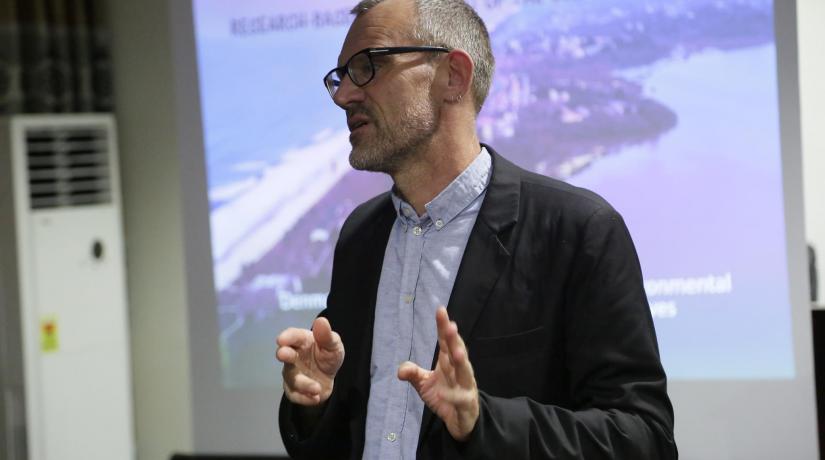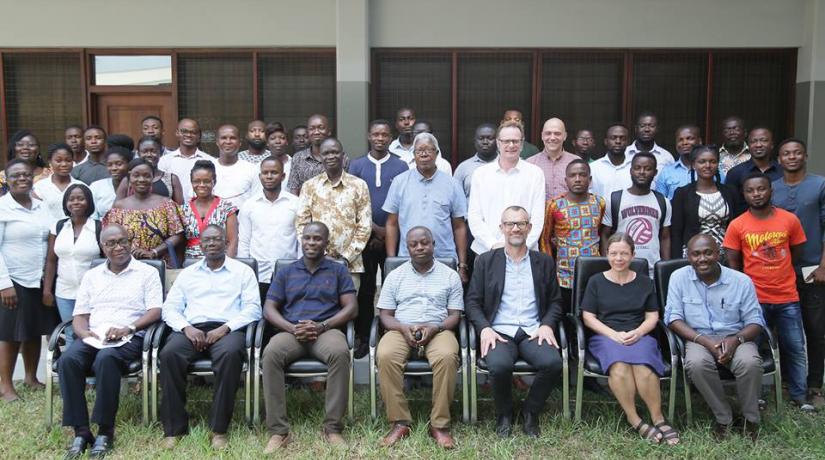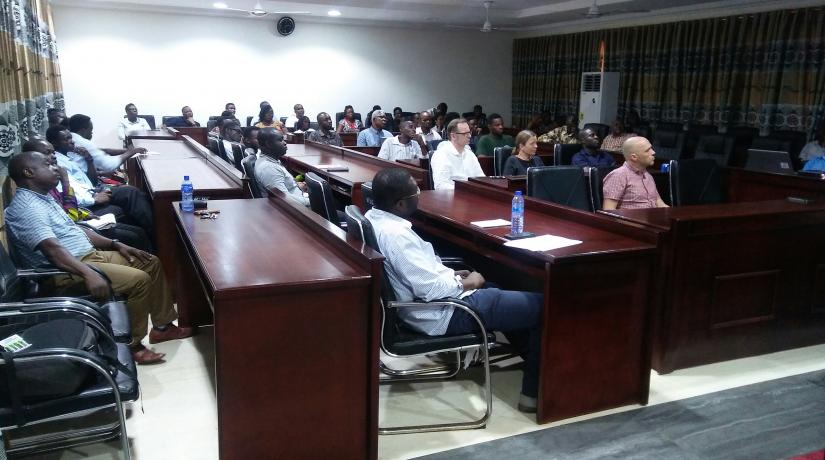


UCC and DTU Begin a Project to Support the Management of Gulf of Guinea
What does the pollution from maritime sources mean for the marine life and livelihood of coastal communities around the Gulf of Guinea? What is the effect when oil and pollution from shipping mix in a warm cocktail with heavy metals from mining and other land-borne pollution sources? These questions will be investigated in a joint project between the Centre for Coastal Management (CCM) of University of Cape Coast (UCC), the Technical University of Denmark Institute for Aquatic Resources (DTU Aqua) and the private sector.
The project is called HOTSPOT, and is financed by the Danish Ministry of Foreign Affairs through DANIDA. In this three-year project, HOTSPOT will generate knowledge to support research-based management of the marine and coastal resources and environment.
One plus one is not always two
The Gulf of Guinea is exposed to multiple stressors, such as discharges from ship traffic, chemicals and heavy metals from mining and oil exploration, and wastes from land. Previous research has shown how these factors individually influence marine life. However, it is far less known how marine organisms react when these factors act together as multiple stressors. HOTSPOT will investigate these problems by conducting small and large-scale laboratory experiments, combined with modelling.
The first step is to determine the types, concentrations and sources of stressors
When the scientists go to work, their first task will be to get more knowledge of the different types of stressors and their main sources. This will be achieved by combining the academic expertise of the two universities with the environmental expertise of two Danish consultancy companies, COWI and LITEHAUZ, and the Ghanaian company, ZEAL Environmental Technologies Limited. HOTSPOT will give opportunities for student exchange, in the form of courses and post-graduate training and projects. The objectives of the project will be achieved in close collaboration with stakeholders, such as Ghana Environmental Protection Agency and Ghana Maritime Authority.
